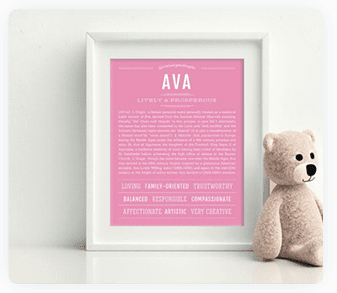Historic Figures
WITH THE NAME DESIREE
Lucille Ball is arguably the finest comedienne of modern time. Born in Jamestown, New York on August 6, 1911, into a family that traced their American origins back to colonial days, Lucille Ball died on April 26, 1989, at age 78. Though she had a moderately successful career in modeling, on Broadway, in movies and radio, it is for her signature role as Lucy Ricardo on the groundbreaking 1950s television sitcom series, I Love Lucy, that she will be forever and most lovingly remembered. She and her husband, Cuban bandleader and singer, Desi Arnaz, revolutionized early television and changed the making of television series, with their camera innovations and insistence on filming from California rather than New York, thereby filming before a live studio audience. It was also felt quite strongly at the time that audiences would never accept the red headed, fair Lucille Ball with an ethnic husband – a misconception that was immediately proven wrong. They reigned supreme for years, and after their divorce, Lucille went on to star in various other comic series on her own, as well as being the operational head of Desilu Productions, eventually buying out Desi Arnaz altogether. Lucille and Desi had two children and divorced in 1960. She was married to her second husband, Gary Morton, from 1961 until her death. The recipient of countless honorariums and awards, she was given the Presidential Medal of Freedom posthumously by President George H. W. Bush in 1989. Doubtless, though, the finest award, we are sure she would agree, is the continuing echo of pealing laughter that still greets her image every day around the world, in non-stop syndication.
Lucille Ball is arguably the finest comedienne of modern time. Born in Jamestown, New York on August 6, 1911, into a family that traced their American origins back to colonial days, Lucille Ball died on April 26, 1989, at age 78. Though she had a moderately successful career in modeling, on Broadway, in movies and radio, it is for her signature role as Lucy Ricardo on the groundbreaking 1950s television sitcom series, I Love Lucy, that she will be forever and most lovingly remembered. She and her husband, Cuban bandleader and singer, Desi Arnaz, revolutionized early television and changed the making of television series, with their camera innovations and insistence on filming from California rather than New York, thereby filming before a live studio audience. It was also felt quite strongly at the time that audiences would never accept the red headed, fair Lucille Ball with an ethnic husband – a misconception that was immediately proven wrong. They reigned supreme for years, and after their divorce, Lucille went on to star in various other comic series on her own, as well as being the operational head of Desilu Productions, eventually buying out Desi Arnaz altogether. Lucille and Desi had two children and divorced in 1960. She was married to her second husband, Gary Morton, from 1961 until her death. The recipient of countless honorariums and awards, she was given the Presidential Medal of Freedom posthumously by President George H. W. Bush in 1989. Doubtless, though, the finest award, we are sure she would agree, is the continuing echo of pealing laughter that still greets her image every day around the world, in non-stop syndication.
Lucille Ball is arguably the finest comedienne of modern time. Born in Jamestown, New York on August 6, 1911, into a family that traced their American origins back to colonial days, Lucille Ball died on April 26, 1989, at age 78. Though she had a moderately successful career in modeling, on Broadway, in movies and radio, it is for her signature role as Lucy Ricardo on the groundbreaking 1950s television sitcom series, I Love Lucy, that she will be forever and most lovingly remembered. She and her husband, Cuban bandleader and singer, Desi Arnaz, revolutionized early television and changed the making of television series, with their camera innovations and insistence on filming from California rather than New York, thereby filming before a live studio audience. It was also felt quite strongly at the time that audiences would never accept the red headed, fair Lucille Ball with an ethnic husband – a misconception that was immediately proven wrong. They reigned supreme for years, and after their divorce, Lucille went on to star in various other comic series on her own, as well as being the operational head of Desilu Productions, eventually buying out Desi Arnaz altogether. Lucille and Desi had two children and divorced in 1960. She was married to her second husband, Gary Morton, from 1961 until her death. The recipient of countless honorariums and awards, she was given the Presidential Medal of Freedom posthumously by President George H. W. Bush in 1989. Doubtless, though, the finest award, we are sure she would agree, is the continuing echo of pealing laughter that still greets her image every day around the world, in non-stop syndication.



